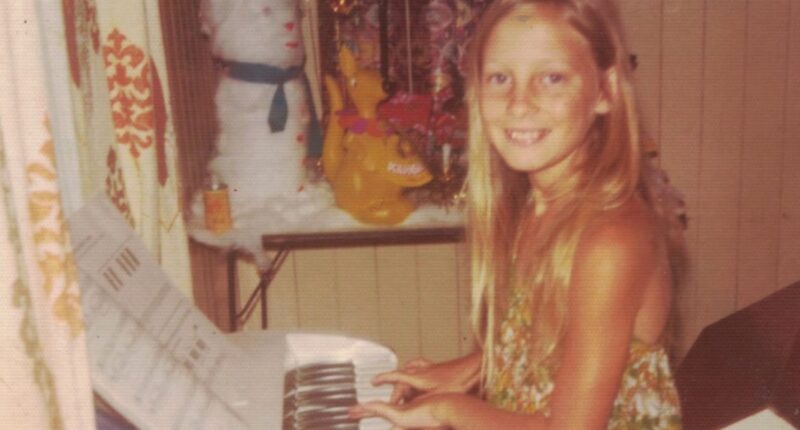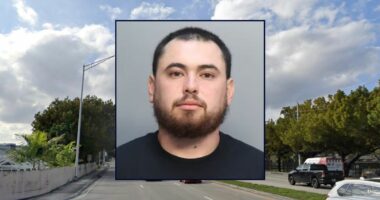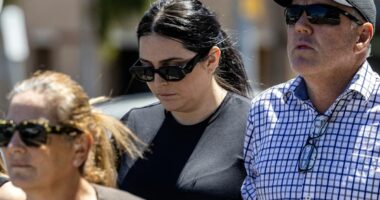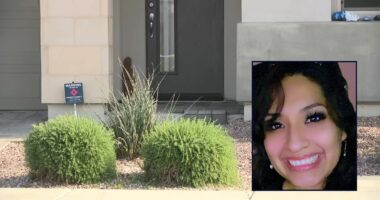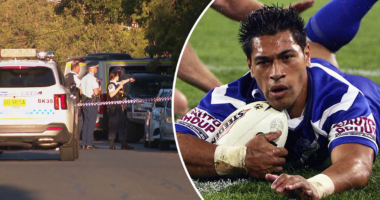Share this @internewscast.com
On its surface, the NSW Sutherland Shire was a carefree place to grow up in the late 1970s, with sun, surf and good times for teenagers.
But, as portrayed in the classic novel and hit Netflix series Puberty Blues, there was also a dark underbelly to “The Shire”, where wild parties, underage sex and rape could make it a dangerous place to be a young girl.
Elaine Johnson was 16 years old when she went missing in January 1980, never to reappear again. Her good friend Kerry Anne Joel was 17.

The disappearance of the two seemingly rebellious teenage girls appeared to cause barely a blip on the police radar.
When Elaine’s dad Clifford reported her missing to police, she was dismissed as a runaway, her family says.
The girls’ friends weren’t interviewed until more than three decades later, in 2014, and, at an inquest in 2016, it was revealed Elaine’s original police file had been lost.
Key shortcomings of the police investigation into Elaine and Kerry Anne’s disappearance are now being revealed in a new podcast by investigative journalist Kate Kachor, with the first episode released on Wednesday.
Elaine’s sister, Helen Cooper, was just 12 years old when Elaine went missing from their family home in Kurnell.
She remembers Elaine as a bright and bubbly girl who was well-liked.
“She was quietly spoken, though, she wasn’t a rowdy person,” she said, adding she didn’t believe it was in her character to run away for good and cut ties with the family.
The 2016 inquest into Elaine and Kerry Anne’s disappearance, held at the State Coroner’s Court of New South Wales, found the girls had likely died not long after they went missing.
The case was referred to the unsolved homicide unit, where it has rested – undisturbed and unresolved – ever since.
However, the Johnson family has never given up in their search for answers about what happened to Elaine, and strongly believes someone from within the girls’ wide circle of friends and acquaintances knows or saw something.
The year before Elaine went missing was one of increasing tension in the house between Elaine and her parents.
The family had moved from Cronulla to Kurnell and Elaine wasn’t happy with the decision.
“After we moved to Kurnell, Elaine often stayed away from home for a number of nights at a time,” Elaine’s mother June told the podcast Out From The Cold: Searching For Elaine.
“I think it was possibly because she didn’t want to live in Kurnell, but wanted to be closer to her friends around Cronulla.”

While Elaine didn’t appear to be using drugs or drinking a lot, the behaviour was a worry to her parents.
“We often had arguments with Elaine about her not telling us where she was going and staying out a lot,” June said.
Things came to a head when the family returned from a camping trip in January 1980 to find the family home trashed.
Elaine had not gone on the camping trip and had instead stayed home and thrown a wild party in her parents’ absence.
“The place was in a mess,” Helen said.
“There was a car that hit the front wall of the house, and it was fibro, so it had gone in and made a hole.”
The bathtub was full of beer bottles and there were plates everywhere.
Incensed, Elaine’s dad Clifford spoke harshly to his daughter, telling her she needed to behave like the rest of the family or find somewhere else to live.
While Elaine’s parents say that was the last time they saw Elaine at the house, Helen remembers her sister sneaking back into their shared bedroom window the next evening.
A night owl, Helen would often spend time with her older sister at night while the rest of the family was asleep.
“We were watching television on the floor ⦠she was also mucking around and taping herself singing,” Helen said.
“And then I remember her eating the scrambled eggs with tomato sauce. There was so much sauce it was more like red eggs.
“That was the last time I saw her.”
Over the next fortnight, Elaine stayed briefly at a flat in Gymea and two other local caravan parks.

From there, the trail goes cold and, as far as the family knows, the girls were not seen again.
A few weeks later, Elaine’s worried father, who died in 2020, went to the police to report her missing.
But he had trouble convincing the police that she could be in danger.
“I know that police didn’t listen to Dad properly and said, ‘She’s 16, she could have just run away’,” Helen said.
One crucial event that could provide a clue to where Elaine went was the house party she threw, Helen said.
The odd thing was, no-one had ever admitted to being at that party, she added.
“Everyone’s tight-lipped. We’re wondering why. But the thing is, the more we ask, the more they sort of get hesitant,” Helen said.
“It’s crucial, because those people at the party would have been talking to them to get some sort of knowledge of where their headspace was, what they were thinking, where they were going.”
Helen said she had heard rumours over the years of other shady activities which had been going on in the area, and felt perhaps people were covering for each other.
“As I’ve gotten older, I’ve realised there was a lot more going on Kurnell, outside of Elaine’s case,” she said.
“Obviously, that sleepy little town wasn’t so sleepy.
“There was a lot going on in that town, and people are maybe afraid of police because there was so much bad stuff happening there.
“They all protect each other. Everyone knows everyone’s business there.”
Given their suspicions that someone knows something, Helen and her family are calling for police to offer a reward for information that leads to solving the girls’ case.
But the suggestion has so far been rebuffed.
“They should definitely offer a reward,” Helen said.
“I don’t understand what the problem is, because (the government) doesn’t have to pay anything, unless somebody comes forth. Are they worried that someone will come forth?”
NSW Police said in a statement: “The disappearance of Kerry Joel and Elaine Johnson is an open case which sits with State Crime Command’s Unsolved Homicide Team.
“A case with the Unsolved Homicide Team is never closed; it remains open until solved and is continually assessed and monitored for new information or avenues to progress the investigation.”
“Since I joined Helen and Wendy’s search, I’ve been contacting old witnesses, reviewing evidence and speaking with experts to try and piece together what really happened,” Kachor said.
“That’s led us to some compelling new information.
“Ultimately Elaine’s family is hoping that releasing this podcast will jog someone’s memory – or lead a guilty conscience to finally get in touch with them or with the police.”
